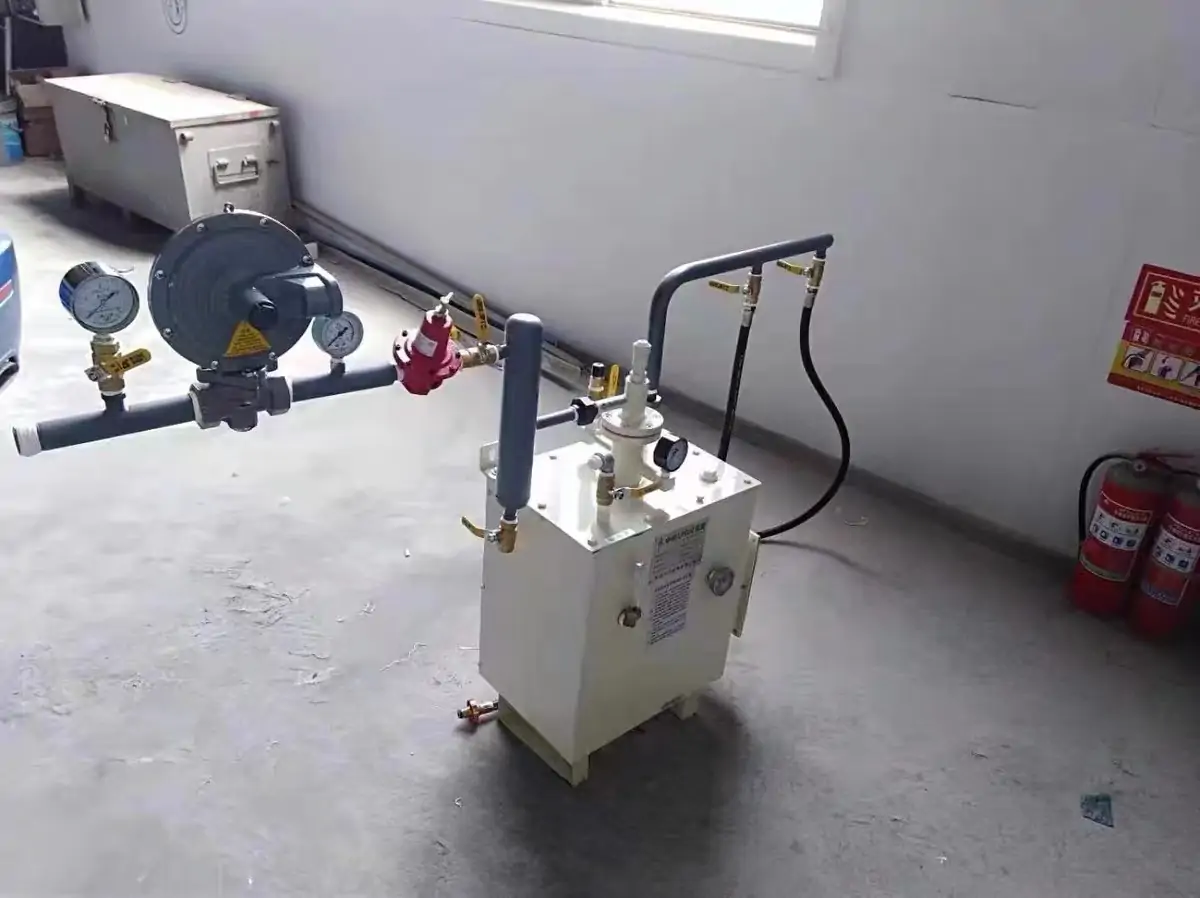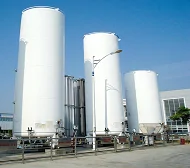The main structural features of cryogenic storage tanks
The low-temperature storage tank adopts vacuum insulation, and the general insulation material is pearlescent sand
The main structural features of cryogenic storage tanks:
1. The low-temperature storage tank adopts vacuum insulation, and the general insulation material is pearlescent sand.
2. The top liquid filling design has a porous pouring structure, which can make the low-temperature liquid stable when filling into the inner container. It can also cause part of the gas phase in the inner container to be absorbed and liquefied at low temperature to maintain the relative stability of the gas phase pressure in the inner container during the filling process.
3. The support structure between the inner tank and the outer shell adopts the upper stainless steel tie belt and the lower stainless steel tube support method. When the equipment is in the normal position, the gravity load of the inner tank and its storage medium is transmitted to the outer shell through three stainless steel tubes, and finally to the outer shell legs and the equipment foundation to avoid additional eccentric moment loads. This structure also protects the equipment. The need for the inner tank to shrink freely under low temperature conditions during operation.
4. The low-temperature pipelines are centralized from the lower end of the tank to facilitate operation and maintenance. In order to ensure that the tank can store cryogenic liquid stably and safely, the tank is equipped with multiple safety devices and instruments: a liquid level gauge, a pressure gauge, an explosion-proof device on the outer cylinder on the mezzanine, a combined safety system on the inner tank, and pipelines. Safety valve, etc.







































































































































